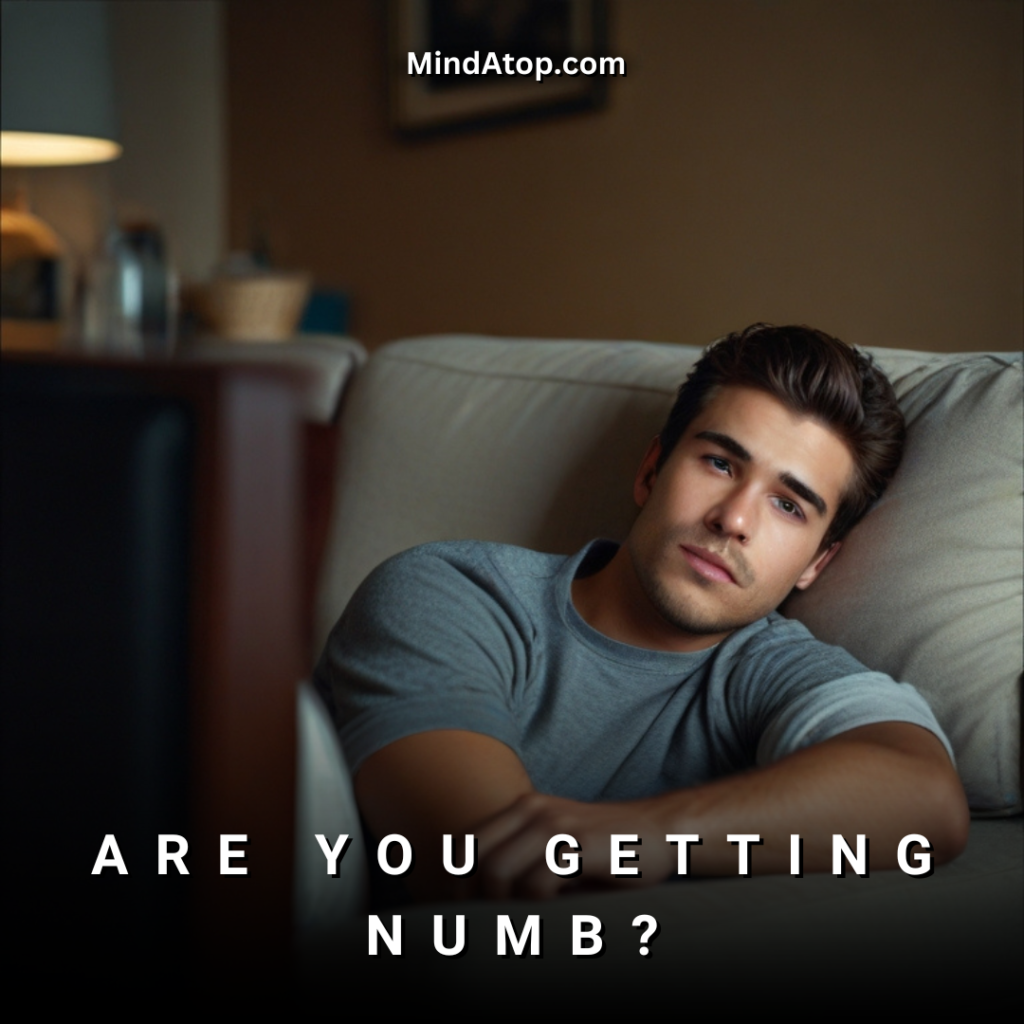Are You Getting Numb?
He thought it was just entertainment, until life whispered—are you getting numb
Young Ravi found solace in the glow of his smartphone screen. Initially, it was innocent—a quick scroll through social media or a casual binge-watch of his favourite shows. But as days turned into nights, Ravi found himself ensnared in the hypnotic grasp of his devices.
With each passing hour, Ravi’s world shrank, confined to the confines of his digital universe. Friends became avatars, and adventures unfolded through pixelated landscapes. The real world faded into the background, replaced by the comforting numbness of his screens. A buried voice within called him out, “Are you getting numb?” But Ravi was unfazed.
At first, the pleasure was undeniable—a temporary escape from the stresses of everyday life. But soon, the signs of his growing addiction began to surface. His mother’s voice calling him to dinner became an annoyance which he started to ignore. School assignments piled up, forgotten in the abyss of notifications and autoplay videos. The fatigue crept into his bones, his eyes burned from relentless scrolling, and his once-brilliant mind now flickered like a dimming screen. It was as though life itself was whispering: Are you getting numb?
Then came the night that shook him. Ravi had stayed up late, his face illuminated by the glow of his phone. His fingers mindlessly tapping and swiping until his vision blurred. Many times, he told himself that he would sleep in five minutes, and then another five, and another five. It went on and on. Before he realized, dawn had broken. Panic gripped him—he had a crucial exam in a few hours. Scrambling to his desk, he tried to cram, but his brain refused to cooperate. His mind, dulled by exhaustion and weakened by endless passive consumption, felt as sluggish as a buffering video.
The test was a disaster. His teacher’s disappointed look stung more than the red marks on his answer sheet. But the worst moment came when he saw his parents’ faces that evening—his mother’s concern, his father’s silent disappointment. Guilt gnawed at him, yet that night, the cycle continued. The temporary pleasure of scrolling numbed his stress, but deep down, he knew it was eroding his self-control.
It wasn’t until another incident—far worse—that Ravi truly saw the depth of his problem. One evening, lost in his digital world, he failed to notice his little sister tugging at his sleeve. “Come play with me,” she pleaded. But he barely acknowledged her, mumbling something dismissive. Dejected, she wandered off. Later, a loud crash shook the house. His sister had climbed onto a stool to reach a toy, lost her balance, and fallen hard.
Ravi’s heart pounded as he rushed to her side. Tears streamed down her face, and guilt clawed at his chest. Had he paid attention, he could have averted this. Instead, he was glued to his screen, oblivious to the world around him.
That night, as he sat by his sister’s bedside, watching her sleep, realization hit him like a tidal wave. His addiction had stolen moments that mattered. It had turned him into a passive observer of life rather than an active participant. Worse, his ability to resist the pull of screens had crumbled, leaving him trapped in a cycle of mindless indulgence.
With newfound determination, Ravi resolved to reclaim control. He started small—putting his phone away during meals, stepping outside for walks, rekindling friendships that had withered in the digital void. Each step away from the screen felt like breaking free from invisible chains. And as he embraced the warmth of human connection and the beauty of the real world, he realized that there was no need to ask the recurring question he had to ask himself each day: Are you getting numb?
Must Read Stories:
Choose Wisely! – “When numbness knocks, let your choices speak.”
HOW AM I?!!! – “It’s okay to feel lost—it’s how we begin to feel again.”
Our Energy Streams – “Go back to the still places that disconnect you.”

